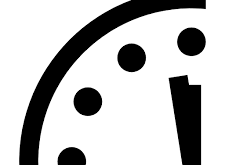Delving into the current trend of treating good writing skills as an accessory for a PR person, rather than the necessity
I think we can all agree that having good communication skills tops the list of “what makes a good PR person”. It makes sense too, when our jobs revolve around establishing positive relationships with several key stakeholders, figuring the best way to present the brands and their messages to the world.
So, when did written communication stop being a part of the deal?
Lately, some conversations have got me wondering about this. PR agencies, in a new turn of events, are feeling the need to hire editors to oversee their written products; new aspirants joining the PR field are seemingly under the impression that writing skills aren’t as necessary a part as professed. Further discussions have revealed a belief that writing is supposed to be the major job role of a journalist – be it articles or press releases or anything else in between. But, having been at both ends of this equation, I can say with confidence that the coordination between a journalist and a PR professional will only excel with an equal qualitative contribution.
Being a stickler for good writing, I obviously want it given its due importance, so I speculate the cause for this shift. It is highly possible that in the age of captions, character limits and common texting abbreviations, our mind associates elaborate written pieces to the more traditional forms like print, rather than the newer means of digital. Given that, on an average, the employees in the advertising industry are millennials and it is increasingly attracting an even younger group, it seems all the more plausible. But here, we have to consider that with digital, we have not only got increased avenues to reach the people with the written word, the quantity has also gone up drastically. Simply compare monthly published issues of print magazines to their digital versions now which have multiple unique pieces being published daily.
What digital has not changed, however, is that every brand has a story to tell. As professionals in the Advertising, Marketing, Media and PR industry, we know this unwavering fact. And we do our – sometimes varied, sometimes overlapping – jobs to help them best tell that story to the audience. Towards the same goal, each tiny detail is given the maximum attention; every aspect of a marketing campaign painstakingly curated; every element on the website accurately placed. What if, after all this, a press note or an article goes out on behalf of the brand’s spokesperson and it’s – to put it politely – not well written? Wouldn’t that be a jarring moment for the consumer, in an otherwise seamless brand experience? Well, human psychology and the extensive research on consumer behaviour says that it will be.
So, in the larger scheme of things, when working in tandem with multiple other sectors and stakeholders, as a PR professional does on a daily basis, a good command over the written word becomes as essential as putting on a pair of shoes before leaving the house.
Something else that has grabbed my attention lately is the unproportioned leaning towards spoken communication over the written. Even though being able to amicably talk to people is a part of building relations and a very important one too, we can’t expect to solely base our work day on it. And when we try to write as we speak, maybe in a bid to deliver more relatable content, we are also forcing the reader to read as we speak, which doesn’t make for the best of reading experiences. I’ve observed that common grammatical and structural mistakes are born out of the need to make the writing sound “cool”. Spoken and written communication have nuanced and intrinsic differences for a very good reason.
As I tried to unravel whether good writing skills were a pair of shoes or a hat, I became more and more convinced that a PR professional cannot treat them as anything but the necessity of the highest order. Everyone is reading, all the time. It might not seem so at the first glance, especially in a time where we’re moving away from all things physical to all things digital, but it is true. Be it an ultra-concise news stories on an app, or your favourite ebook, or a social media post (hyperlinked to a bigger story), or the bigger story itself, or the subtitles of a foreign-language show, or the 4-word tagline to a new product – people are reading. And if they’re reading, we’ve got to write and write well!
 Newspatrolling.com News cum Content Syndication Portal Online
Newspatrolling.com News cum Content Syndication Portal Online






